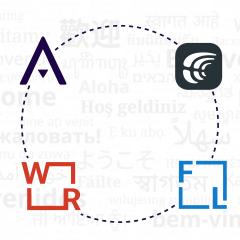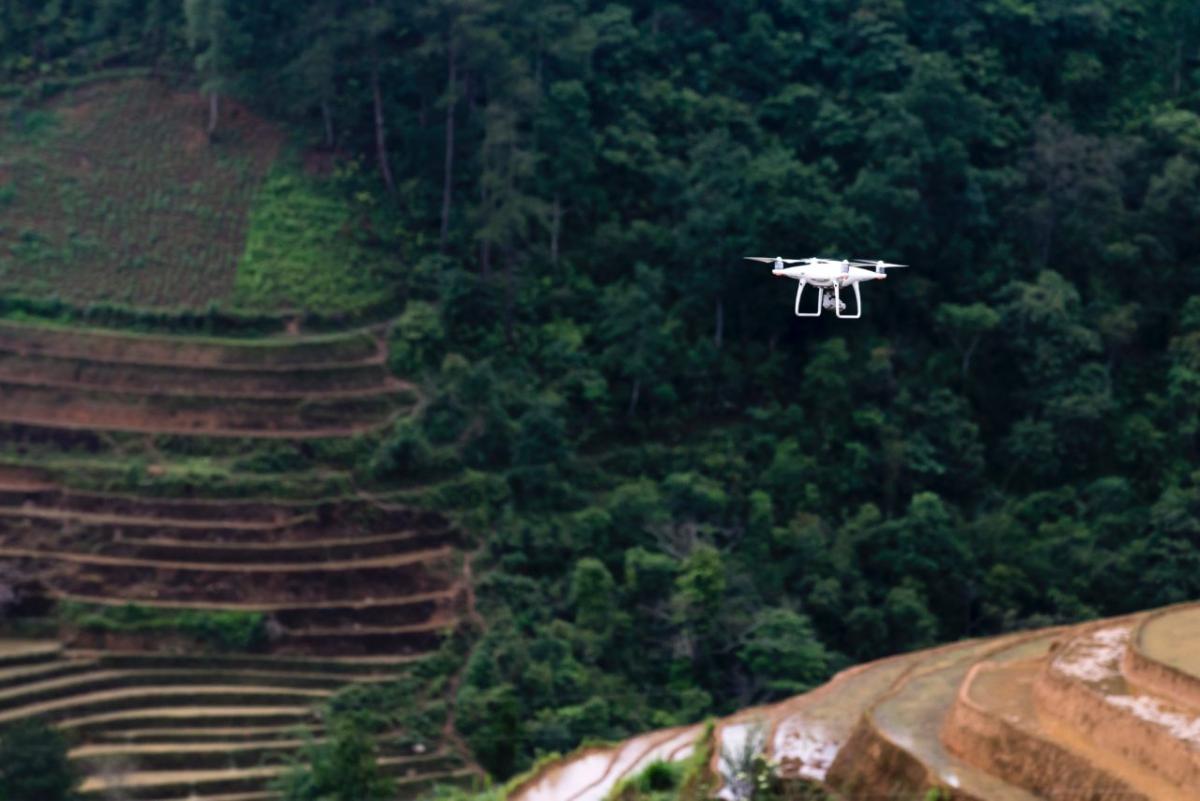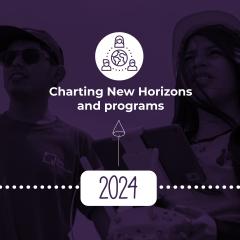
Announcing the Winners of the WeRobotics Microgrants Program for Flying Labs
July 9th, 2019

Sincerest thanks and congratulations to the winners of this year’s Microgrant Awards! A total of 11 Flying Labs from Africa, Asia, Latin American and Oceania were just awarded grants to expand their impact in areas they are most passionate about. The awardees are Benin, Cameroon, Chile, Côte d’Ivoire, India, Jamaica, Kenya, Papua New Guinea, Philippines, Senegal and Uganda Flying Labs!
Benin Flying Labs is looking to expand the use of mapping drones to support local sustainable development projects hundreds of kilometers from the capital city of Porto-Novo. One of the barriers to mainstreaming this application of drones is the lack of awareness and openness by municipal authorities vis-a-vis the value added of drones for development. To tackle this challenge, Benin Flying Labs will use their grant to run these workshops with all six of the communes of Collines department. Together with local stakeholders, they will also identify 2 pilot projects per communes and establish long term partnerships with each commune for future projects related to education, environment and agriculture, for example.
Cameroon Flying Labs is prioritizing local capacity building to train more Cameroonians in the use of Robotics-for-Good. They have already used part of their grant to build their own capacity in the use of fixed-wing drones and GIS for actionable analytics. For example, they recently participated in a week-long regional training on these specific topics co-organized by Senegal Flying Labs and WeRobotics in Senegal. Thanks to the skills and experience gained during this professional training in Senegal, Cameroon Flying Labs is using the other part of their grant to run similar trainings to build the capacity of local stakeholders within Cameroon.
Chile Flying Labs continues to be directly engaged in the use of drones for disaster management and search & rescue. As such, they will use their grant to organize an International Training Workshop in Geomatics for Disasters, where experts in the use of Geomatics for the analysis of risks and disasters present methodologies and lessons learned from different countries. The purpose is to strengthen the Pan-American network of specialists in geomatics in Disaster Risk Management, through the formal establishment of channels of communication and mutual collaboration. They will work directly with Flying Labs from Panamá, Eru and the Dominican Republic to organize and run this international training.
Côte d’Ivoire Flying Labs is keen to prepare local youth for the workforce of the future. They will be running their own Fly Like A Girl Program at a high school in Abobo in partnership with Abobo City Hall. This training, which will be geared towards young girls from disadvantaged neighborhoods, will provide local youth with the foundational knowledge they need to enable them to prepare themselves for the drone industry in the years to come. The training will include flight simulations, overview of hardware components of drone technology, assembly of drones, introduction to regulations and visits to local companies already using drones, for example.
India Flying Labs is working directly with the authorities in the state of Odisha to demonstrate what drones and AI can do during and after disasters. This is in response to the recent Cyclone Fani, which caused widespread damage across the state. India Flying Labs will use their grant to build the capacity of local authorities, drone startups, NGOs and community leaders vis-a-vis the use of drone and AI for damage assessments, recovery and reconstruction. This training will include a disaster response simulation drawing on existing lessons learned and best practices. Their plan is to use this opportunity to create a formal, long-term partnership with the authorities and main stakeholders in the state of Odisha.
Jamaica Flying Labs is actively working with local youth and will use their grant to organize a Fly Like A Girl summer camp. The purpose of this summer camp is to increase the number of women in Science, Technology, Engineering and Mathematics (STEM). The program will train young students on the use of robotics and geospatial analysis for disaster management and sustainable development in Jamaica. The training will also provide students with an overview of various local professions, institutions for further studies and local entities that currently use drones and geospatial technology in their operational activities.
Kenya Flying Labs is continuing to play an important role in building local capacity in Kenya. This requires them to expand their expertise so they can train other local stakeholders. As such, Kenya Flying Labs will use their microgrant to train 4 additional staff on the use of multi-rotor and fixed-wing drones as well as marine drones. This training will include a dedicated focus on the use of GIS and AI for actionable analytics to support local decision-making. Having these skills in-house will enable the team in Kenya to become more sustainable. Kenya Flying Labs will partner directly with Tanzania Flying Labs as the latter will provide the in-person hands-on training to build this in-house capacity.
Papua New Guinea Flying Labs seeks to break the stereotypical mindset in their country which discourages girls from pursuing careers in Science, Technology, Engineering and Mathematics (STEM). They will use their grant to run a Fly Like A Girl program which will teach students about drones, drone rules, safety considerations, and how to program drone missions to capture aerial photos of their school. The training will also help students map their future as analytical thinkers and problem-solvers. Papua New Guinea Flying Labs will first start this program in partnership with Sogeri National High School in the Central Province since the Flying Labs has already carried out community engagement activities there in relation to their earlier medical cargo drone project.
Philippines Flying Labs believes that all children regardless of income status should have access to high quality STEM education. But children in public schools in the Philippines especially living in the remote areas do not have access to good learning facilities and up to date equipment because of lack of budget. Therefore, most of these high school children will not go to college and will work as farmers, fishermen and factory workers, for example. Philippines Flying Labs will therefore use their grant to train local youth who would otherwise never have the opportunity to learn about drones and all the good that these emerging technologies can do for the Philippines.
Senegal Flying Labs is working with local middle schools, high schools and universities to prepare students for the careers of the future. For example, they have already carried out two youth trainings, one for the University of Bambey for Engineering and the other with Lymamoulaye High School. Both these trainings were a resounding success. Senegal Flying labs will use their grant to further develop their training materials and expand them these trainings to other education institutions in the north, central and south of the country.
And last but certainly not least:
Uganda Flying Labs is working hard to create an enabling environment in Uganda to for the use of drones for social good, particularly with respect to the use of cargo drones for public health. In this respect, one of the main challenges is the lack of insurance options to ensure drones and third parties. As such, Uganda Flying Labs will use their grant to enlighten insurers on the importance and contributes of cargo drones to the growth of a healthy society. They will organize a policy workshop to bring together relevant ministries and service providers of medicines, diagnostic services and insurance. This workshop will seek to locally the concerns that insurers have around insuring medical cargo drones in order to unlock the full potential of cargo drones for public health in Uganda.
Recent Articles

